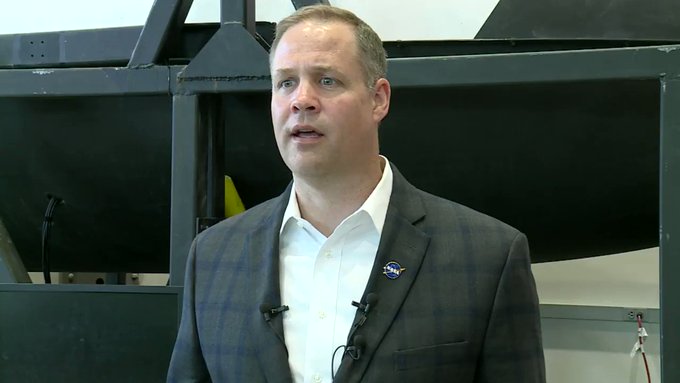"Pluto Is A Planet," Says NASA Chief
August 24 is a very sad day in the hearts of an especially loyal and dogged sect of Pluto groupies. On this day in 2006, Pluto was demoted from a planet to a dwarf planet, sparking a debate that continues to bubble up in comment sections to this day.
But on the eve of “Pluto Demotion Day” this year, NASA Administrator Jim Bridenstine gave fresh hope to the pro-Pluto planet party, claiming that the mysterious icy oddball is actually a planet (at least in his opinion).
“Just so you know, in my view, Pluto is a planet,” Bridenstine said at a FIRST Robotics event this morning in Oklahoma, broadcasted on NASA TV.
“You can write that the NASA administrator declared Pluto a planet once again,” he joked.
“I’m sticking by that, it’s the way I learned it and I’m committed to it.”
Needless to say, this won’t settle the debate. When Pluto was first formally discovered by Clyde Tombaugh in 1930 it made headlines around the world and was promptly described as the “the ninth planet beyond Neptune.” If you’re older than 25 or so, chances are you would have been taught at school that Pluto is our Solar System's ninth planet. For one reason or another, Pluto also grew to become one of the most beloved bodies in the whole Solar System, hence why its fall from grace was so upsetting for some.
In 2006 the International Astronomical Union (IAU) created a new definition for planets and Pluto did not fit the bill. The updated definition required a celestial body to tick three boxes before it can be called a planet. First, it must orbit around the Sun. Second, it must have sufficient self-gravity to make a round (or round-ish) shape. And last but not least, the body has to have cleared the neighborhood around its orbit. Since Pluto is surrounded by a flock of other icy Kuiper Belt objects similar to itself, it does not fit the definition and cannot be considered a true planet, merely a dwarf planet.
After all, there are dozens of similar "Trans-Neptunian Objects" and celestial bodies that are comparable to Pluto that we don’t think of as planets. Eris, as just one example, is a near-spherical icy body that’s more massive than Pluto and only slightly smaller.
The debate was refueled by the findings of NASA’s New Horizons probe flyby in 2015. Among its many discoveries about Pluto, the mission showed that Pluto and its satellites were much more complex than previously thought. Insights into Pluto’s surface and atmosphere further shook up the debate. So much so, Alan Stern, the planetary scientist who led the New Horizons mission, even co-authored a paper calling for a reclassification of Pluto as a planet.
“[The IAU is] primarily made up of non-experts, astronomers who study black holes and galaxies [and so on],” Stern told IFLScience in 2017. “Other organizations [with planetary scientists] may be more appropriate.”
The debate has continued to rage, however, and while Bridenstine's recent comments will be joyous news to many hardcore Pluto loyalists, they're unlikely to change much in the eye of the IAU.





No comments